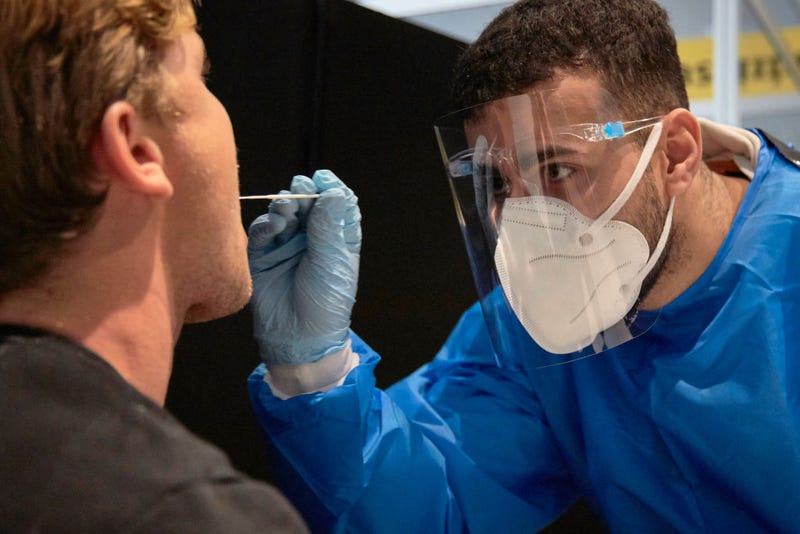
It's likely COVID-19 will continue to mutate as the virus develops, and while many health experts and scientists are focusing on the mutations that make the virus more transmissible, some are examining another, but equally important, aspect of mutation.
"We've been studying a variety of other mutations in other parts of the genome that are allowing the virus ultimately to suppress or inhibit our immune response," said Dr. Nevan Krogan, a professor and the Director of the Quantitative Biosciences Institute at UCSF on KCBS Radio's "Ask an Expert" on Monday with Jeff Bell.

The body’s immune response is key in fighting off the virus, and the virus is evolving to overcome that response, "sort of like a smokescreen into ourselves," said Krogan. This delays the body's response, allowing the virus to replicate more, effectively causing increased transmissibility.
So far in the pandemic, there have been five variants of concern, alpha, beta, gamma, delta and omicron, said Krogan, with delta and omicron being the most transmissible.
Based on preliminary research, it seems as if omicron is not going to be worse than delta, perhaps less so, said Krogan. To better understand each variant, Krogan's team has gone back to the beginning, and by studying alpha they've found similarities in delta and omicron.
"There's great value in looking backward to all the different mutations that have come up with all the variants," he said. "Try to understand what they’re doing in isolation because we’re going to see a variant like we did with omicron that’s going to combine a bunch of mutations."
But what's made the analysis different, is that more people are now vaccinated.
"The message really continues to be: get vaccinated, get vaccinated, and get boosted," he said.
There need to be drug treatments as well as vaccinations in order to better combat the mutations of the virus, he said.
Fortunately, two new pill treatments were approved last week, which will likely begin being used "effectively" by the beginning of the new year, he said.
These new pills spell an important milestone in the pandemic, the Pfizer treatment pill, in particular, is said to reduce the risk of hospitalization by 90%.
The earlier the pills are taken after infection the better, but they're likely to work within the first five days or so, said Krogan.
As time goes on, more innovations might improve effectiveness, or multiple drugs, "maybe a cocktail will be needed," he said, like with other viruses, such as HIV.
LISTEN on the Audacy App
Sign up and follow Audacy
Facebook | Twitter | Instagram
